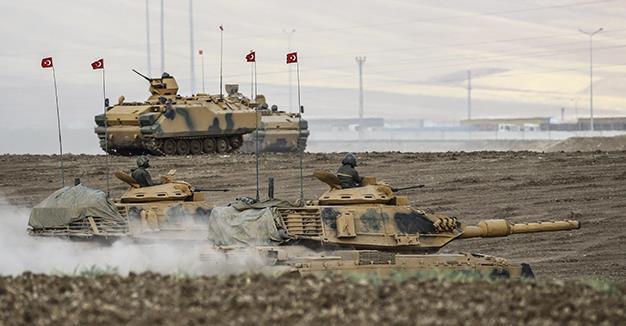Ankara plots ‘three-stage roadmap’ after KRG referendum
Uğur Ergan / Nuray Babacan - ANKARA

AA photo
The government is planning to put measures set out in the National Security Council (MGK) meeting on Sept. 22 into practice if the Iraqi Kurdistan Regional Government (KRG) goes ahead with the independence referendum on Sept. 25.Priority in these measures will be placed on economic steps as well as intense diplomatic pressure on the Masoud Barzani administration.
A statement after the MGK meeting on Sept. 22 said the KRG independence referendum “directly threatens Turkey’s national security and is a grave mistake that threatens Iraq’s political unity and territorial integrity, as well as the peace, security and stability of the region.” It added that “Turkey reserves its rights originating from bilateral and international conventions if the referendum is held.”
In the cabinet meeting that took place after the MGK meeting on Sept. 22, President Recep Tayyip Erdoğan asked each minister to prepare a detailed report on possible measures that could be taken within their own jurisdiction.
Ministers believer that around 70 percent of all outside needs in northern Iraq are provided by Turkey, so the cabinet has decided to close the Habur border gate and freeze exports if the referendum goes ahead. Oil and gas purchases from the KRG will also be frozen, despite the fact that such measures will negatively affect Turkey’s foreign trade.
Ankara also plans to accelerate diplomatic efforts to press Iran and the central government in Iraq to implement the same measures. Within this framework, President Recep Tayyip Erdoğan will ask Tehran to close its border gates and to freeze commercial ties with the KRG during his upcoming visit to Iran on Oct. 4. He will also reportedly offer Turkey’s willingness to consider joint steps with Iran to address the matter.
In addition, Ankara also intends to implement and accelerate certain security measures. In line with this, the cabinet decided that agreements signed between Turkey and Iraq in 1926 and 1946, which include agreements on the inviolability of the border between the two countries, will be discussed in detail in the international arena.
















